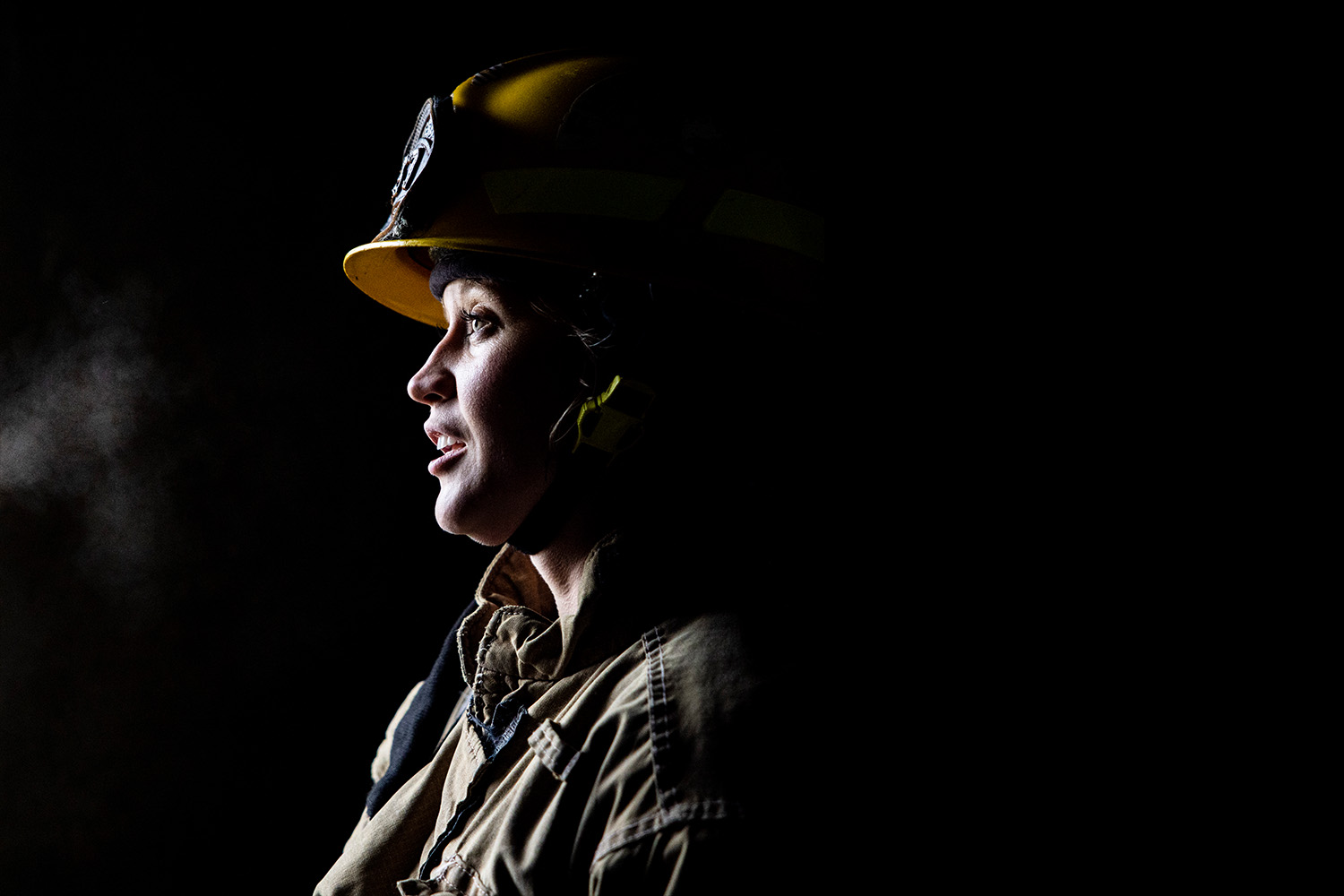Traversing through the smoke: Women on the frontline of fires and hardship
Despite self-imposed and external hardships, female firefighters overcome challenges each day to better their communities, with support systems backing them every step of the way.
February 14, 2023

Megan Wichmann sat in her high school English classroom in 2009 and contemplated her new assignment for the month: Pick a career and research it. Wichmann was interested in shadowing a paramedic, so she went on a few ambulance ride-alongs in Johnson County.
Wichmann’s mother’s partner at the time was an Iowa City firefighter, and he asked Wichmann if she wanted to ride along in a firetruck for the day. Wichmann quickly accepted, eager for every experience she was offered.
“I think that’s honestly where I fell in love with firefighting because I get to do EMS and fire,” the Iowa native said. “Then, it kind of took off from there.”
And with each ride-along and conversation, Wichmann’s passion for helping others grew stronger.
Twenty days after Wichmann graduated from Iowa City High School, she went on a ride-along at Station Five in Cedar Rapids. After obtaining her EMS and fire science certificates and degrees from Kirkwood Community College in 2013, Wichmann sat in the same station as a paid Cedar Rapids firefighter in 2014.
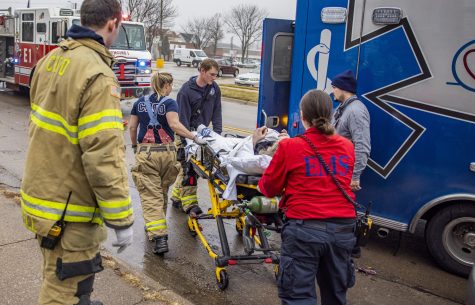
Since then, the 30-year-old has jumped from station to station and absorbed as much information as possible, connecting with coworkers and bettering the community, which she said she cares deeply about.
“You never know what the day has in store for you,” Wichmann said. “So, just being able to roll with the punches or adapt and overcome is kind of the motto for me.”
Wichmann said community risk reduction is a large part of why she loves being a firefighter.
“I love hearing stories. [Community members] even say, ‘I remember coming to the fire station when I was in preschool,’ and this could be like a 30- or 40-year-old civilian coming in, and they remember that piece of their life,” Wichmann said. “I just enjoy the heck out of it.”
During her nine years in the field, Wichmann said there have been times when community members come up to her and said, “I’ve never seen a female firefighter.” They’ll even come up and ask for a photo.
“My initial reaction is to let out a belly laugh,” Wichmann said. “Whenever anybody wants to come up and engage in conversation, I’m all for it … I love the fact that people are inquisitive — young and old.”
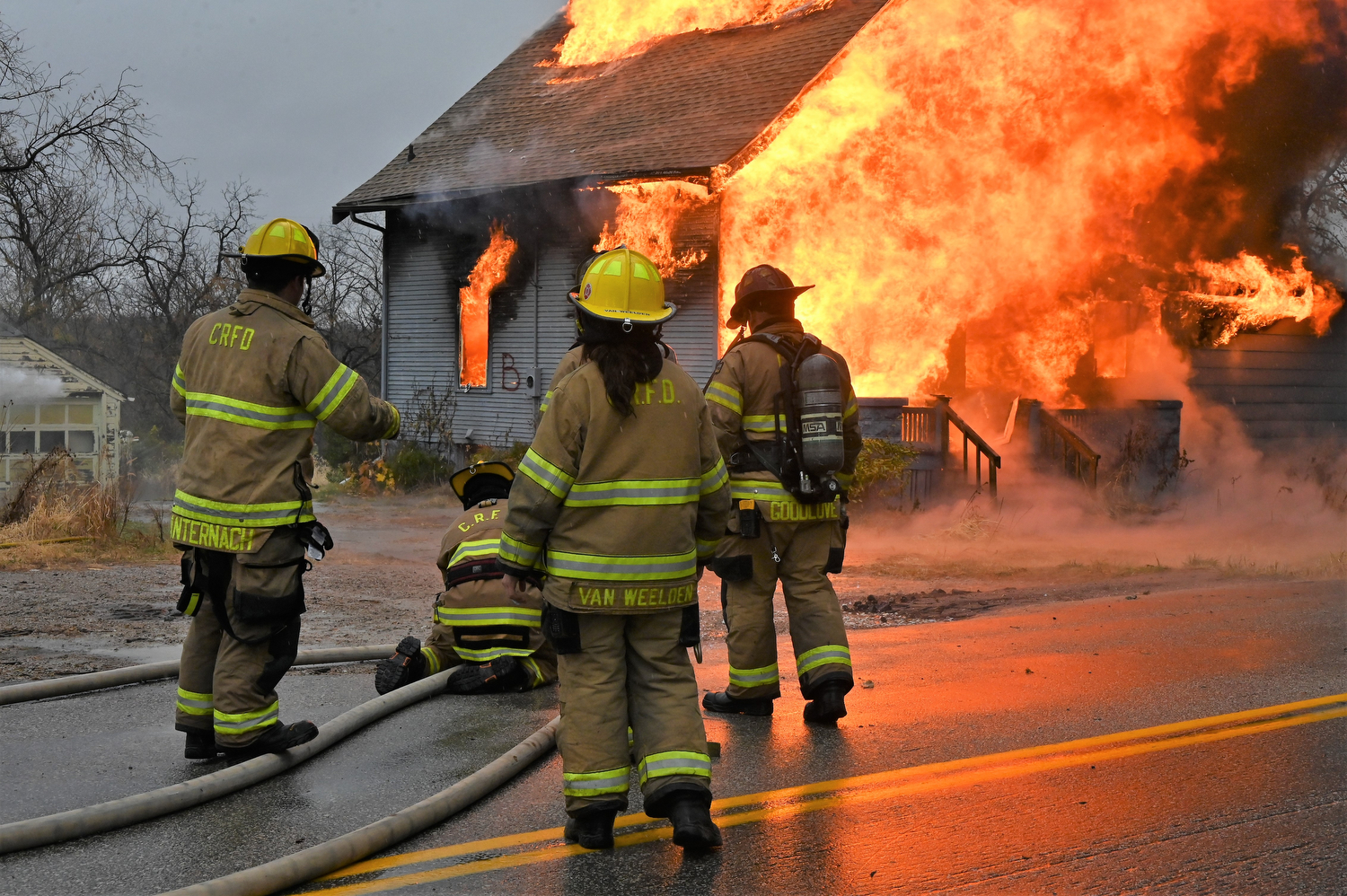
Challenges for female firefighters
The National Fire Protection Association estimated female firefighters made up 9 percent — around 89,600 — of 1.04 million career and volunteer firefighters in the U.S. in 2020. The Cedar Rapids Fire Department has eight female firefighters.
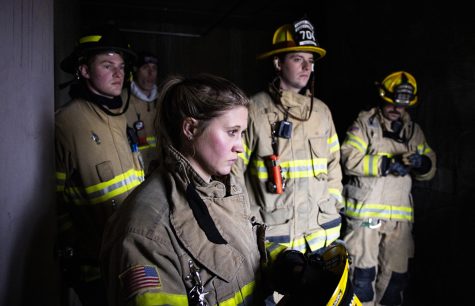
Amy Kunkle, Cedar Rapids Fire Department fire and explosives investigator, said she’s experienced challenges being a woman in the fire service, including self-imposed hardships.
“It feels like, as a woman, you have to prove yourself more than a male does,” Kunkle said. “And I’m not saying that’s reality. It’s just kind of something that myself and others that I work with feel.”
Kunkle, who is 45 years old, has worked at the department since 2008. She found there are many benefits to having female firefighters out in the field.
She said even though men may naturally be built physically bigger and stronger, there are a lot of circumstances where bigger isn’t better.
One day on the job, Kunkle and her coworkers responded to a house fire. As Kunkle was circling the home and looking for potential victims and fire hazards, she noticed the department’s hose nozzle was placed on the wrong side of the fence. So, Kunkle had to hop over a fence quickly to start putting water on the fire as soon as possible.
“I wouldn’t be in the field if I didn’t believe that I could do it,” Kunkle said.
Jennifer Alexander, a preschool teacher at Cadence Academy in Iowa City and a volunteer firefighter for the Coralville Fire Department, said she bears external hardships in the fire service.
Alexander is a 5-foot tall, 125-pound woman in the fire service. She said people sometimes underestimate her skills because of her stature and her gender.
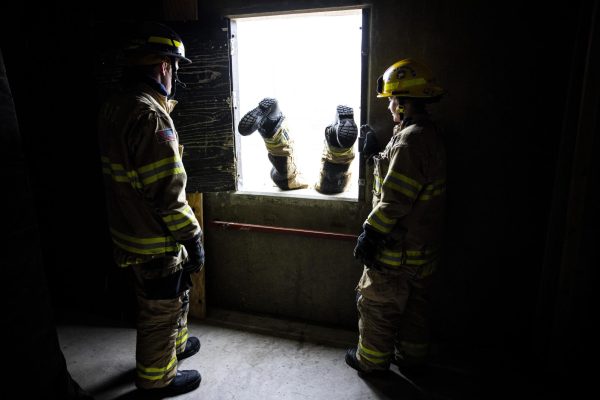
Alexander said gear is an unexpected challenge she experiences daily. She said she wishes gear was more accessible and fit women better so they could complete tasks to the best of their ability without having inappropriately-sized gear slowing them down.
“We have to do the same work as men — in gear that’s not designed to fit us using tools that aren’t designed with us in mind — and have to be able to do it at the same standard of quality and efficacy as men,” Alexander said.
Alexander said the department is aware of issues with her gear not fitting. But because of cost and gear being normally purchased in bulk, the department is not able to provide her with properly-fitting gear. However, she said the department has been able to accommodate her with inexpensive equipment including suitable structure gloves.
Alexander said, along with the constraints of gear, she sometimes feels restrained when using her voice and asserting herself in situations.
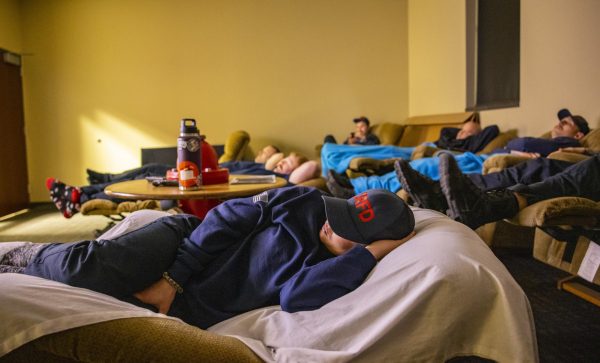
“If a woman is assertive and a little aggressive, they’re a b****,” Alexander said. “But if a man is aggressive and standing his ground, he’s just being assertive.”
She said it often feels like high school all over again.
“If you get the highest score on a math test, everyone hates you because you set the curve,” Alexander said. “But if you’re the captain or the quarterback for the football team or the star basketball player, and you score the winning points, it’s announced on the loudspeaker how great and awesome you are.”
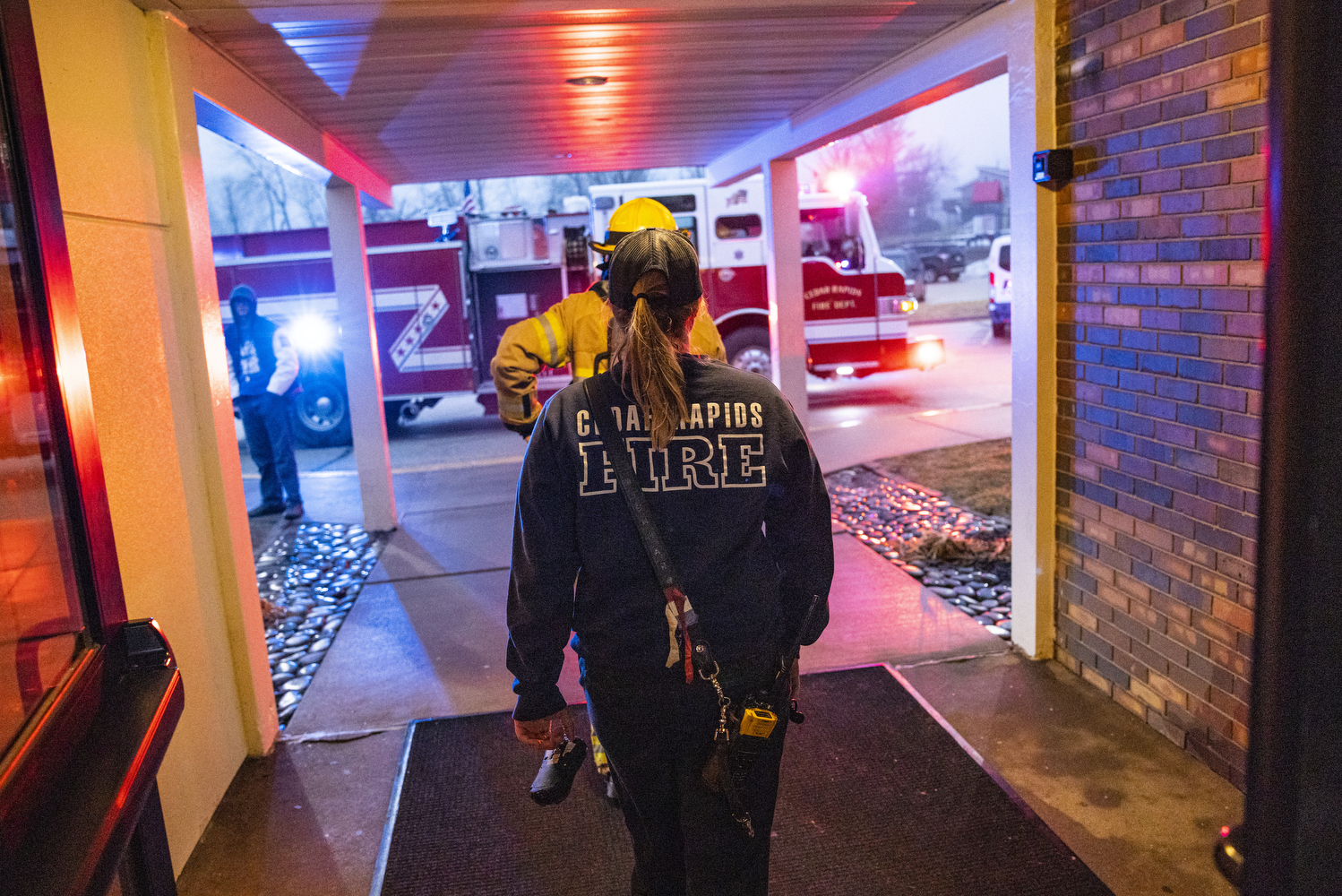
Wichmann walks out of Cedar Rapids school after responding to a fire alarm on Monday, Jan. 2, 2023. As a female firefighter, Wichmann tries to make herself available and approachable for community members of all ages to ask questions, which is what she does at the Young Women’s Fire Academy. The academy was started by the CRFD in 2017 and helps to provide skills and opportunities for women ages 16 and older to learn about firefighting as a career. Wichmann said she still talks to women who went through the academy.
Overcoming adversity in the fire service
Some women have been actively battling constraints in the fire service for years, Julie Popelka, a current firefighter at the Cedar Rapids Fire Department, said.
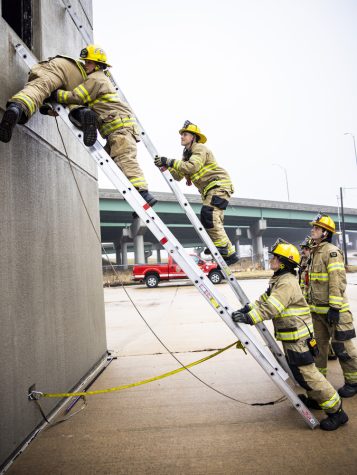
Popelka started working for the department about 20 years ago when she was 42 years old. At the time she started in the department, there were two other female firefighters who passed along their advice on overcoming adversity in the field.
And overcoming adversity is exactly what Popelka had to do.
Popelka stood shoeless in the kitchen during her rookie year at the station, making cookies for her coworkers during some downtime the firefighters had in between calls. As she was running around and baking cookies, an older male firefighter walked in laughing and made the comment, “Yep, that’s where the woman should be: barefoot in the kitchen.”
Popelka said although he may not have meant it in a crude way, it has stuck with her during her 20 years in the fire service.
Popelka said the department continues to improve representation and accept women in the field.
In 2017, the department created the Young Women’s Fire Academy to introduce women and girls ages 16 and older to the fire service by providing skills and opportunities for participants to learn about firefighting as a career.
Popelka said during the academy a couple of years ago, women were participating in a fitness challenge, and one of the battalion chiefs of the department came down to observe. And as one woman was running through the challenge, the chief was shocked to see every participant cheering the woman on and supporting her through the entire challenge.
“The battalion chief afterward came up and told us, ‘It’s just amazing to see the difference. Men wouldn’t be doing that,’” Popelka said. “It was just neat for him to see how the women encouraged each other.”
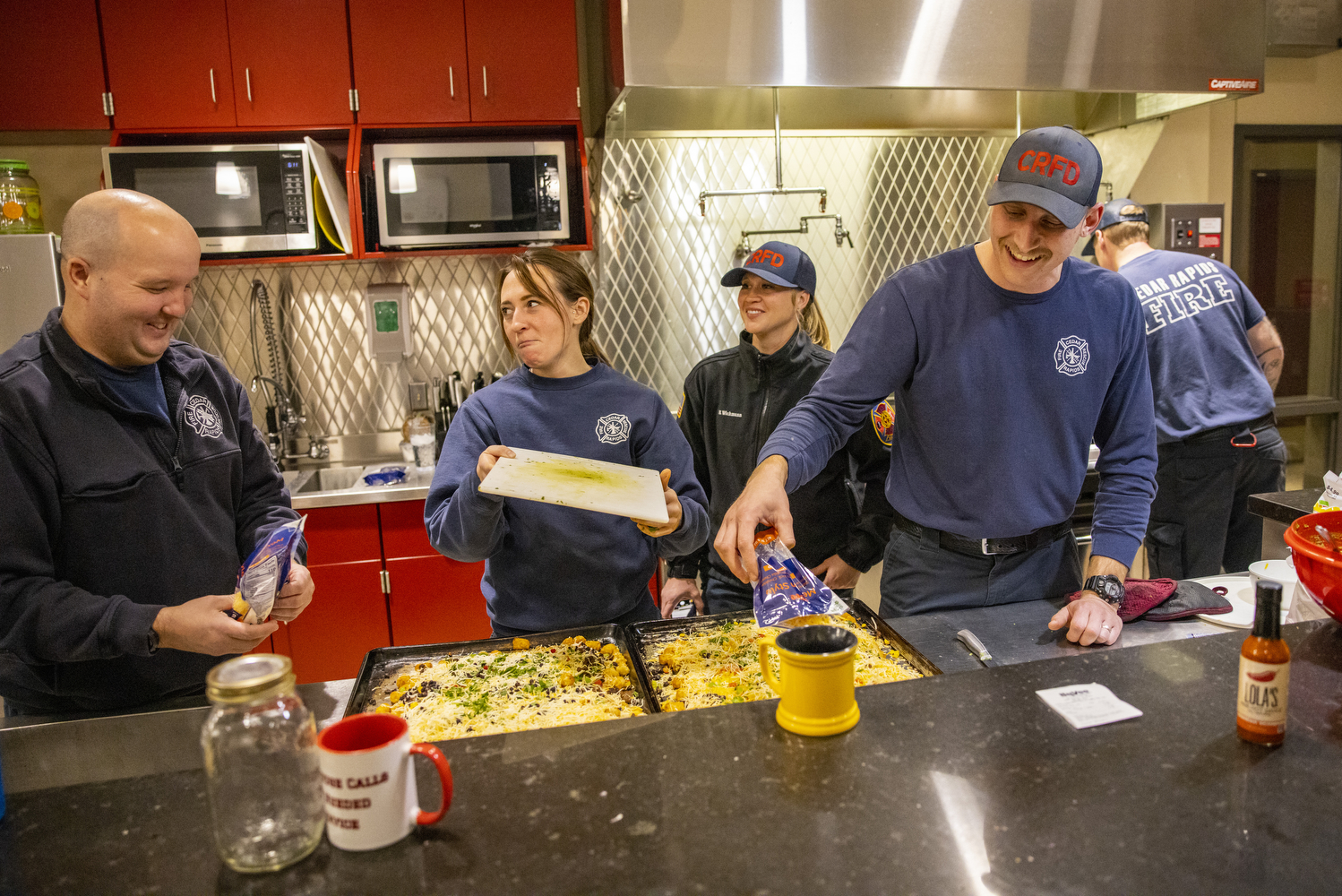
Firefighters Travis Foster, Van Weelden, Wichmann, and McFarlane make nachos for dinner at the Cedar Rapids Central Fire Station on Wednesday, Dec. 7, 2022. Wichmann said the people she works with are what makes the job so special. “The guys and gals that I work with on the daily through my volunteer experience and my professional firefighting experience are the ones that make the job,” Wichmann said. “Just cooking dinner together and running these calls together, doing things outside of the job. It’s fulfilling, and I wish everybody could experience something like it.”
Finding a support system
Popelka said female firefighters need to have a solid support system to do a job in a male-oriented field.
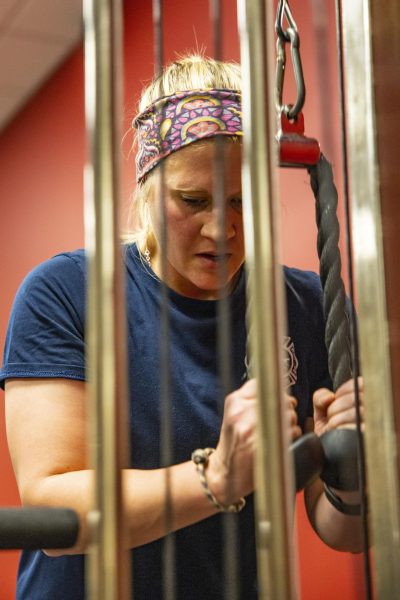
Both Popelka and Kunkle said their husbands and children are supportive of their career paths, and they are grateful to have that backing.
“[My husband and children] are my biggest cheerleaders,” Kunkle said. “They’ve always been really proud of me, and that makes it a lot easier when I’d have to leave for 24-hour shifts and not be able to see them, or if I’ve missed a holiday or birthday or an important event.”
Wichmann said she’s appreciative of her niece and nephew, who she cares so deeply for, and wants to be a role model for them as she works in the fire service.
“I want them to be able to have the mindset that they can do anything. They can be anything,” Wichmann said.
Kunkle said not a lot of young girls think about being firefighters when they grow up because they don’t see that female representation often.
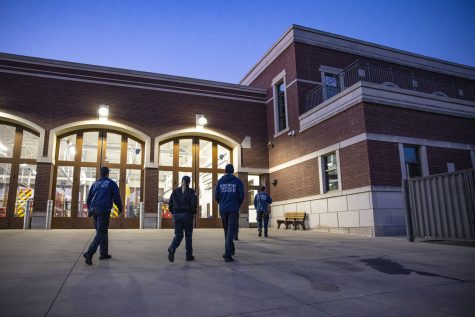
“I think it’s really important for them to see me and Megan and Julie out there so that maybe [firefighting] is something that will pop into their mind,” Kunkle said.
Wichmann said, despite the challenges of being in the fire service, the people she works with and the community she works in make the job worth it.
“The guys and gals that I work with on the daily through my volunteer experience and my professional firefighting experience are the ones that make the job,” Wichmann said. “Just cooking dinner together and running these calls together, doing things outside of the job. It’s fulfilling, and I wish everybody could experience something like it.”
